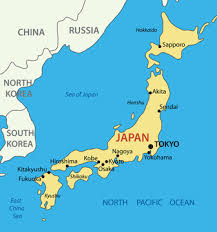Exploring the Enchanting Wonders of an Archipelago

The Wonders of an Archipelago
An archipelago is a unique geographical formation consisting of a group of islands clustered together in a specific area. These clusters of islands can be found all around the world, each offering its own distinct beauty and charm.
One of the most famous archipelagos is the Galápagos Islands, located in the Pacific Ocean. These islands are known for their incredible biodiversity and unique wildlife, including the famous Galápagos tortoises. Visitors to the Galápagos Islands have the opportunity to witness firsthand the wonders of evolution and natural selection.
Another notable archipelago is the Maldives, a tropical paradise in the Indian Ocean. With its crystal-clear waters, white sandy beaches, and overwater bungalows, the Maldives is a popular destination for honeymooners and luxury travelers seeking relaxation and seclusion.
Archipelagos are not only beautiful but also hold great ecological significance. They provide habitats for diverse marine and terrestrial species, making them crucial to global biodiversity conservation efforts. Additionally, many archipelagos are vulnerable to environmental threats such as climate change and sea-level rise, highlighting the importance of protecting these fragile ecosystems.
Whether you’re exploring the volcanic landscapes of Hawaii or snorkeling in the turquoise waters of the Seychelles, archipelagos offer endless opportunities for adventure and discovery. So next time you’re planning a vacation, consider visiting an archipelago and experience firsthand the wonders that these island clusters have to offer.
Understanding Archipelagos: Key Questions and Insights
- What is an archipelago?
- How are archipelagos formed?
- Where are some famous archipelagos located?
- What is the significance of archipelagos in terms of biodiversity?
- Are all islands within an archipelago similar in terms of geography and ecology?
- What are some popular activities to do when visiting an archipelago?
What is an archipelago?
An archipelago is a term used to describe a group or cluster of islands that are closely situated together within a specific area. These island formations can vary in size and number, ranging from small groups of islands to vast chains spread across oceans. Archipelagos are known for their unique geographical features, diverse ecosystems, and rich biodiversity. They often attract travelers seeking to explore different landscapes, marine life, and cultures within the interconnected island network. Whether it’s the volcanic islands of Indonesia or the remote atolls of the Pacific, each archipelago offers a distinct experience shaped by its geography and history.
How are archipelagos formed?
Archipelagos are formed through a variety of geological processes, with the most common being volcanic activity and tectonic plate movements. Volcanic archipelagos, such as the Hawaiian Islands, are created when underwater volcanoes erupt and build up layers of lava over time, eventually emerging above the surface of the ocean. Tectonic plate movements can also lead to the formation of archipelagos, as shifting plates can cause land to break apart into smaller islands that cluster together. Erosion and sea-level changes further shape archipelagos over millions of years, creating the diverse and stunning island landscapes that we see today.
Where are some famous archipelagos located?
Some of the most famous archipelagos are located in various parts of the world, each offering its own unique charm and beauty. The Galápagos Islands, situated in the Pacific Ocean, are renowned for their incredible biodiversity and role in shaping Charles Darwin’s theory of evolution. The Maldives, a tropical paradise in the Indian Ocean, is famous for its luxurious overwater bungalows and pristine beaches. In Southeast Asia, Indonesia boasts the stunning Indonesian Archipelago, comprising thousands of islands with diverse cultures and landscapes. Closer to home, the Hawaiian Islands in the central Pacific Ocean are known for their volcanic origins and rich Polynesian heritage. These are just a few examples of the many famous archipelagos that captivate travelers with their natural wonders and cultural significance.
What is the significance of archipelagos in terms of biodiversity?
Archipelagos play a crucial role in terms of biodiversity due to their unique characteristics and diverse ecosystems. The isolation of islands within an archipelago often leads to the evolution of distinct species that are found nowhere else in the world, known as endemic species. These islands provide habitats for a wide range of plant and animal species, many of which have adapted to the specific environmental conditions of their island home. Additionally, the varied landscapes and habitats within an archipelago support a rich diversity of marine and terrestrial life, making them hotspots for biological diversity. Conservation efforts in archipelagos are essential for preserving these unique ecosystems and protecting the numerous species that rely on them for survival.
Are all islands within an archipelago similar in terms of geography and ecology?
Within an archipelago, the islands can vary significantly in terms of geography and ecology. While some islands in an archipelago may share similar characteristics due to their proximity and shared geological history, it is not uncommon for islands within the same archipelago to exhibit distinct differences in terrain, flora, and fauna. Factors such as volcanic activity, climate patterns, and human influence can contribute to the diversity seen among islands in an archipelago. This variation adds to the overall richness and complexity of these island clusters, making each island within an archipelago a unique ecosystem worth exploring.
What are some popular activities to do when visiting an archipelago?
When visiting an archipelago, there are a variety of popular activities to enjoy amidst the stunning island landscapes. One of the most common activities is exploring the pristine beaches and crystal-clear waters through activities such as snorkeling, diving, or simply relaxing on the sandy shores. Hiking and trekking along scenic trails to discover panoramic viewpoints and hidden gems offer a closer look at the natural beauty of the islands. For those interested in wildlife, observing unique species endemic to the archipelago, such as rare birds or marine life, can be a memorable experience. Additionally, cultural immersion through visits to local villages, trying traditional cuisine, or attending cultural performances allows visitors to connect with the rich heritage of the archipelago. Whether seeking adventure or relaxation, there is no shortage of exciting activities to partake in while exploring an archipelago.
